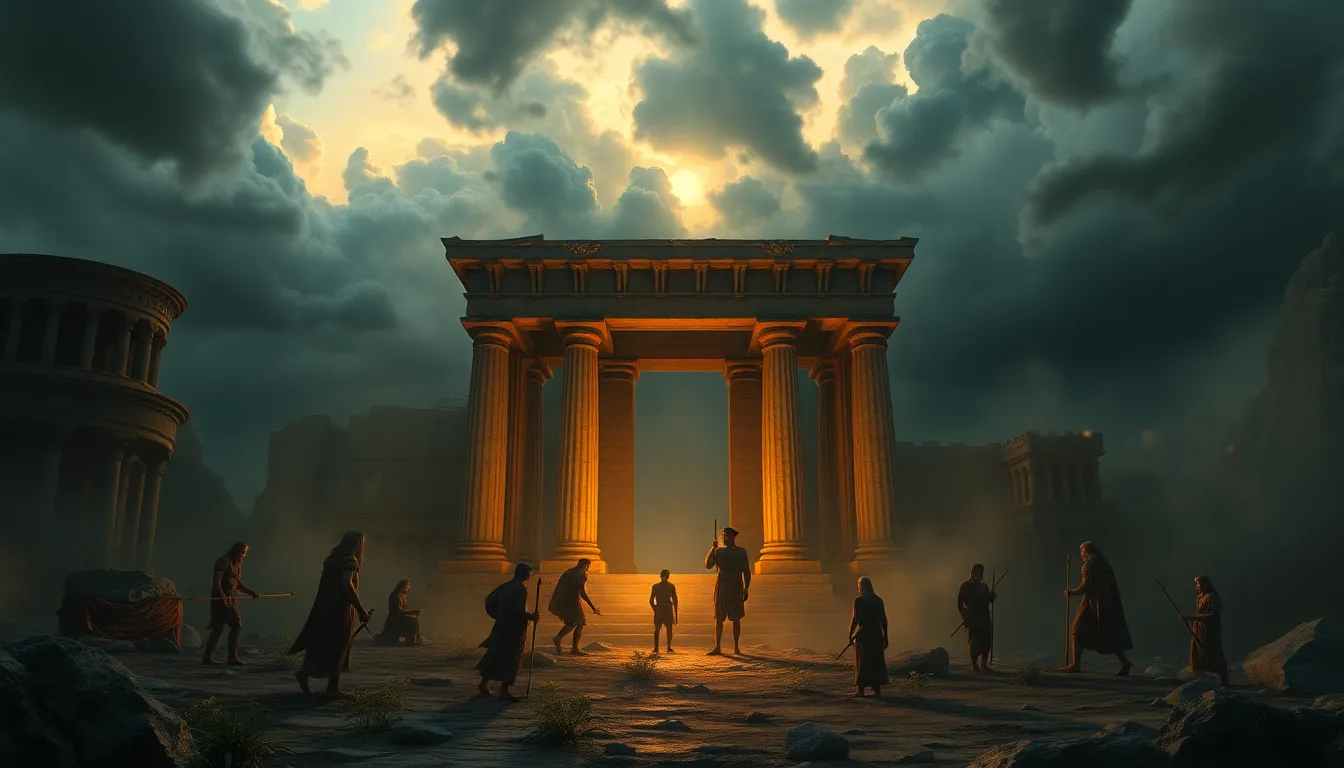Moral Myths of the Ancient World: Lessons for Modern Life
1. Introduction: The Enduring Power of Myths
Myths have played a significant role in shaping cultures throughout history. Defined as traditional stories that embody the beliefs and values of a society, myths serve not only to entertain but also to educate. In ancient societies, myths were central to conveying moral lessons that guided individuals in their daily lives, influencing their behavior and societal norms.
This article will explore how the moral lessons embedded in ancient myths can inform our understanding of modern ethical dilemmas. By examining these stories, we can uncover timeless wisdom that remains relevant in today’s complex world.
2. The Role of Mythology in Ancient Cultures
Mythology served as a backbone for various ancient cultures, including the Greeks, Romans, and Egyptians. Each society had its own set of myths that reflected its values and beliefs:
- Greek Mythology: Myths like those of Zeus and Athena were not only entertaining but also provided lessons in heroism, wisdom, and justice.
- Roman Mythology: Myths such as those of Mars and Venus illustrated virtues like honor and love, serving to unify the Roman people through shared narratives.
- Egyptian Mythology: Stories of gods like Osiris and Isis emphasized the importance of order and morality, vital for societal cohesion.
These myths served as frameworks for moral education, where characters faced dilemmas that reflected the societal values of their time. By engaging with these narratives, ancient peoples could learn about right and wrong, justice and injustice, and the consequences of their actions.
3. Prominent Moral Myths and Their Messages
Many ancient myths contain profound moral lessons. Notable examples include:
- Prometheus: The Titan who defied the gods to bring fire to humanity, symbolizing the quest for knowledge and the consequences of defiance.
- Medusa: A tale of beauty and transformation, highlighting themes of jealousy and punishment.
- The Good Samaritan: Although a biblical parable, it echoes the moral imperatives found in many ancient cultures about compassion and altruism.
These stories not only provided entertainment but also reflected the cultural and ethical values of their time, encouraging individuals to act with integrity and compassion.
4. The Concept of Justice in Ancient Myths
Justice is a recurring theme in many ancient myths, often illustrated through stories that emphasize fairness and moral order. One prominent example is:
- The Judgment of Solomon: This biblical tale showcases King Solomon’s wisdom in determining the rightful mother of a child, illustrating the importance of discernment and justice in leadership.
These portrayals of justice reflect societal views and provide insights into how ancient cultures approached fairness. In modern contexts, we can draw parallels between these ancient concepts and contemporary issues, such as legal fairness and moral responsibility.
5. Heroic Archetypes and Ethical Leadership
Mythological heroes like Hercules and Odysseus embody traits that are essential for ethical leadership, including:
- Courage in the face of adversity.
- Willingness to sacrifice for the greater good.
- Integrity and commitment to moral principles.
These archetypes continue to inspire modern leaders and role models, reminding us of the qualities that define effective and ethical leadership. In a world often marked by moral ambiguity, these stories provide a blueprint for how to act with honor and purpose.
6. Ethical Dilemmas in Ancient Myths
Many characters in ancient myths face profound ethical dilemmas that resonate with modern moral conflicts. A notable example is:
- Antigone’s Choice: In Sophocles’ tragedy, Antigone confronts the conflict between familial loyalty and civic duty, raising questions about the nature of justice and morality.
These dilemmas mirror contemporary ethical challenges, offering insights into decision-making processes. By examining how characters navigate their moral landscapes, we can glean valuable lessons for addressing similar issues today.
7. The Human Condition: Flaws and Redemption in Myths
Ancient myths are rich with depictions of human flaws, such as hubris, greed, and betrayal. These narratives often also offer stories of redemption and personal growth:
- Aeneas: His journey in Virgil’s epic illustrates the themes of duty and personal sacrifice, emphasizing the potential for growth through adversity.
These stories teach us about self-awareness and moral development, encouraging modern individuals to reflect on their flaws and strive for personal improvement.
8. Mythical Cautionary Tales and Their Modern Parallels
Cautionary tales from ancient myths continue to resonate today, warning against potential pitfalls:
- Icarus: His flight too close to the sun serves as a warning against hubris and the dangers of overreaching ambition.
- Pandora’s Box: This tale cautions against curiosity and the unforeseen consequences of our actions.
These narratives hold relevance in warning against modern pitfalls like technology addiction and consumerism, prompting individuals to consider their choices and the impacts they may have on their lives.
9. Integrating Ancient Wisdom into Modern Life
As we navigate the complexities of modern life, the teachings of ancient myths offer valuable insights. By integrating these moral lessons into our daily practices, we can foster a more ethical and reflective society. Whether through literature, education, or personal reflection, the wisdom of the ancients can guide us in making informed decisions that honor our shared humanity.



